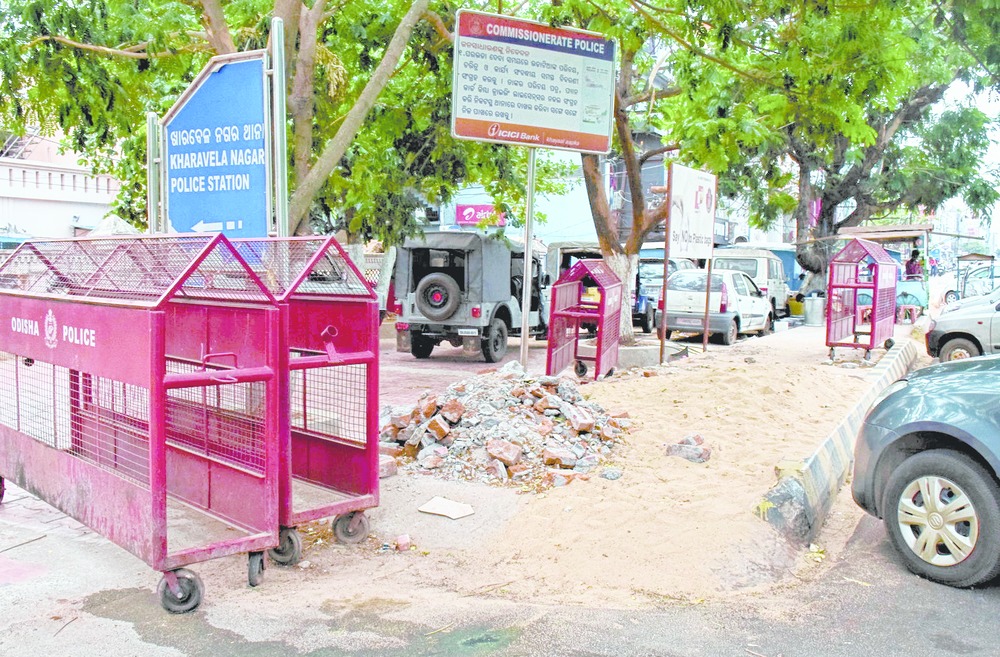
on Wednesday. Picture by Ashwinee Pati
Bhubaneswar, May 11: Unattended construction and demolition waste on roads could shortly be a thing of the past as the state government is planning to enforce guidelines notified by the Centre that prohibit dumping of waste.
The Union ministry had in March issued guidelines and asked civic authorities and pollution control boards of the states to frame bylaws under the Construction and Demolition Waste Management Rules, 2016. According to the mandate, the bylaws should come into force within a year.
On March 18, the Centre had notified the new Plastic Waste Management Rules, 2016, to manage the country's massive burden of plastic waste.
"We will hold a meeting to decide on framing the bylaws and enforce it immediately," said Bhubaneswar mayor Ananta Narayan Jena.
The new rules bar people from dumping waste on the side of the road and ask for mandatory recycling. The rules also make it must for local authorities to utilise 10 to 20 per cent of construction and demolition waste generated while executing municipal and government projects in making kerb stones, drain covers and paving blocks in pedestrian areas.
The rule also stated that the waste generators, irrespective of whether private or government, would remain responsible for collection and segregation of the waste. The civic body will have to ensure proper dumping and recycling of the waste in designated dumping yard.
According to the rules, largescale generators of waste (producing above 20 tonnes of waste per day, or 300 tonnes per project) will also have to pay charges for collection, transportation, processing and disposal, as notified by the authorities concerned.
Moreover, largescale generators, who generate more than 20 tonnes of waste in a day, will have to segregate the waste into four streams such as concrete, soil, steel, wood and plastics, bricks and mortar. They will also have to submit a plan and get appropriate approvals from the local authority before starting construction or demolition or remodelling work.
The generators should keep the waste in designated collection centres and pay the civic body for its management.
According to environmentalists, in the era of rapid urbanisation, the capital city generates huge amount of construction and demolition waste that causes pollution.
"The waste generated out of construction projects triggers air pollution and invites a number of respiratory diseases. Proper management of such waste is necessary to ensure a clean city. The city is undertaking a lot of such development work, but proper management of the waste is equally important," said environmentalist Sailabala Padhi.
The Telegraph had on April 23 reported about the poor quality of air here. The reason according to state pollution control board experts is largescale construction and demolition works in the city. Environmental scientist D.K. Behera said that construction activities were the main reason for air pollution in the city.
Moreover, irregular dumping of such waste and other construction materials on the roadside and at public places also make life difficult for the residents. "The footpaths in the city are home to construction waste. This has made walking difficult for us," said Bhanupriya Mishra, a student of Rama Devi Women's University.











